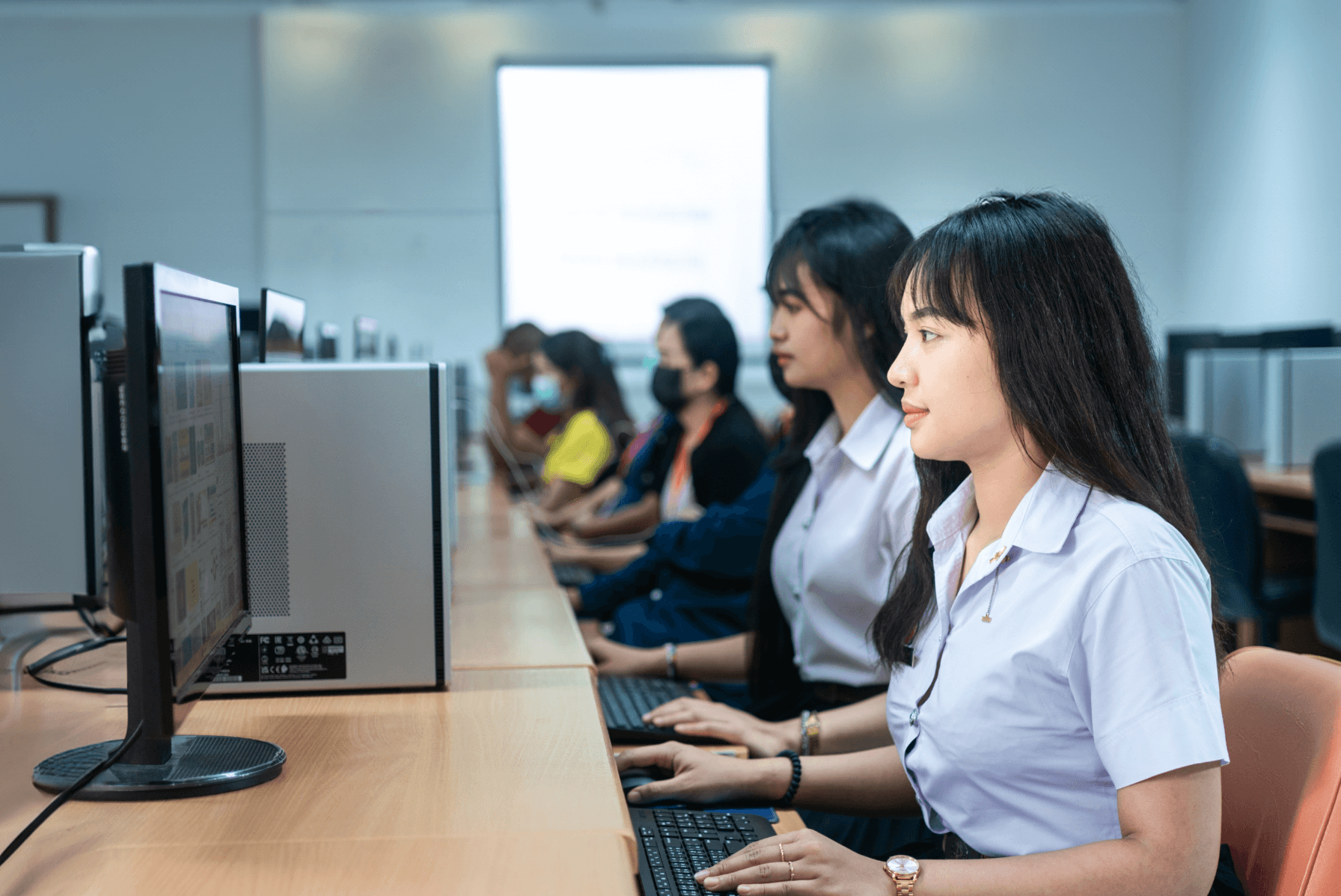




The Association of Southeast Asian Nations has emerged as a critical regional organisation, which is key in fostering cooperation, stability, and economic growth among its Member States.
As ASEAN navigates the complex landscape of the 21st century, it must employ effective strategies to shape its future, safeguard regional interests, and respond to changing geopolitical and geoeconomic dynamics. It must put emphasis on strengthening regional identity and collective leadership, fostering shared citizenship, enhancing community resilience, and cultivating 21st-century skills.
Shared regional identity
A shared regional identity instils a sense of belonging and solidarity among Member States. Emphasising shared values and cultural elements can foster unity and cohesiveness within ASEAN, enabling it to speak with a collective voice in global affairs.
Cultural exchanges, tourism, and joint educational programmes among Member States are important for promoting mutual understanding and respect, cultivating a sense of ASEAN identity among citizens, creating a shared vision, and promoting cooperation in various sectors.
A shared identity helps ASEAN project a positive image to the world. By showcasing its diversity, cultural heritage, and commitment to regional peace and stability, ASEAN can attract global interest, investments, and partnerships, increasing its influence and standing on the global stage.
A shared ASEAN identity also enhances its soft power projection. It enables ASEAN to influence global narratives, promote regional norms, and contribute to global problem-solving initiatives, such as climate change mitigation, disaster management, and sustainable development.
Collective leadership
ASEAN can also foster a culture of collective leadership within the regional organisation. This means that leadership is not the exclusive domain of an individual but rather the shared responsibility of a group of people cooperating with each other. This approach requires collaboration, trust, and shared decision-making. ASEAN has some elements of collective leadership in place, such as the principle of consensus-building, which is an essential feature of ASEAN decision-making.
To further enhance collective leadership, ASEAN Leaders should create a shared vision for the region’s future and be willing to collaborate, communicate, and share responsibility to attain this vision. These necessitate openness to the diverse perspectives and voices of the Member States and finding common goals and priorities that can be addressed collectively. For example, ASEAN could form task forces or working groups that bring together experts from different Member States to collaborate on specific projects or policy initiatives.
A united ASEAN with strong collective leadership can negotiate better terms in international trade, security, and diplomatic negotiations. A coordinated approach strengthens ASEAN’s bargaining position and ensures that the interests of all Member States are well represented.
Amidst changing global dynamics, a strong regional identity and collective leadership will enable ASEAN to adapt and respond effectively. By presenting a united front, ASEAN can maintain stability, attract investments, and capitalise on emerging opportunities while addressing challenges collectively.
Enhancing community resilience with a focus on ASEAN Socio- Cultural Community sectors
ASEAN must invest in social programmes that promote inclusivity, equality, and social cohesion. Addressing poverty, improving healthcare systems, and advancing social protection schemes will enhance community resilience, reduce inequalities, and ensure the well-being of ASEAN citizens.
ASEAN should prioritise education and skill development initiatives to equip its citizens with the necessary competencies for the future. ASEAN can empower its communities to adapt to technological advancements and economic transformations by focusing on quality education, vocational training, and lifelong learning.
ASEAN should strengthen regional cooperation in disaster management, sharing best practices, and developing robust early warning systems. By investing in infrastructure resilience, capacity building, and regional coordination, ASEAN can better respond to natural disasters and other crises, safeguarding the well-being of its communities.
Key 21st-century skills for stronger ASEAN leadership and citizenry
Youth makes up approximately one-third of the ASEAN population, with a peak population of over 220 million expected by 2038. It is the ASEAN Foundation’s belief that youth play a pivotal role in building a peaceful and prosperous ASEAN Community as leaders of tomorrow. The ASEAN Foundation and its partners are committed to contribute by providing a platform for young people in ASEAN to learn the following key skills:
Technical and digital skills. In an increasingly digital world, technical and digital skills are essential. Proficiency in areas such as coding, programming, data analysis, digital marketing, and IT literacy can open up opportunities in various industries, including technology, e-commerce, and finance. ASEAN Foundation works very hard with various partners from private sector, such as Microsoft, Google.org, Huawei, SAP, on these important issues.
Soft skills. Soft skills, also known as transferable or interpersonal skills, are highly sought after by employers. These include developing a stronger sense of empathy, communication, igniting the spirit of teamwork and collaboration, problem-solving, adaptability, enhancing leadership skills, critical thinking, creativity, expanding friendship, and network. Soft skills enable young people to collaborate effectively, navigate workplace challenges, and demonstrate professional competence. Examples of projects undertaken by the ASEAN Foundation include eMpowering Youths Across ASEAN supported by Maybank Group and Maybank Foundation.

Entrepreneurial skills. Encouraging entrepreneurial mindsets and developing entrepreneurial skills can empower young people to create their own businesses and contribute to economic growth. Skills like creativity, business planning, financial management, marketing, and risk assessment are valuable for aspiring entrepreneurs in ASEAN countries. Social enterprise is another area that the ASEAN Foundation focuses on. With support from SAP and TikTok, the ASEAN Foundation is currently implementing the ASEAN Social Enterprise Development Programme 2.0.
Language proficiency. ASEAN is a diverse region with multiple languages spoken across its member countries. Proficiency in English, as well as local languages, can enhance employability and facilitate cross-cultural communication in ASEAN’s interconnected economies.
Industry-specific skills. Depending on the sector or industry of interest, young people should acquire specific skills relevant to their chosen field. This might include skills related to finance, engineering, healthcare, hospitality, tourism, agriculture, manufacturing, or other industries that are prominent in ASEAN countries.
Lifelong learning and adaptability. The world is rapidly evolving, and the job market is constantly changing. Young people need to cultivate a mindset of continuous learning and adaptability. This involves being open to acquiring new skills, keeping up with industry trends, and embracing opportunities for professional development and upskilling.
Strengthening institutional capacity
ASEAN must enhance its institutional capacity to address regional challenges effectively. This involves bolstering the ASEAN Secretariat and its related mechanisms, enabling the organisation to coordinate and implement policies more efficiently.
Deepening and broadening economic integration
ASEAN should prioritise further economic integration to capitalise on the collective potential of its Member States. ASEAN should develop a trade negotiation strategy on different issues and scope for each country that is already a dialogue partner and with a new country with high potential. Promoting trade liberalisation, reducing barriers, and fostering innovation and entrepreneurship can boost economic growth and enhance ASEAN’s competitiveness in the global marketplace.
Enhancing connectivity
ASEAN should focus on enhancing physical, digital, and people-to-people connectivity within the region. Infrastructure development, digitalisation initiatives, and cultural exchanges can facilitate greater collaboration, understanding, and mutual benefits among ASEAN Member States.
Strengthening regional security cooperation
ASEAN needs to reinforce its security architecture by strengthening existing mechanisms such as the ASEAN Regional Forum (ARF) and ASEAN Defense Ministers’ Meeting (ADMM). Engaging in proactive dialogue, promoting confidence-building measures, and addressing regional security challenges collectively will safeguard ASEAN’s long-term interests.
As ASEAN moves forward, shaping its future and safeguarding its regional interests require a comprehensive strategy. By prioritising strengthened regional identity, collective leadership, shared citizenship, community resilience, and cultivating 21st-century skills, ASEAN can navigate the changing global dynamics successfully. These strategies will enable ASEAN to enhance its standing in the global community, foster regional prosperity, and ensure a brighter future for its Member States and citizens.








